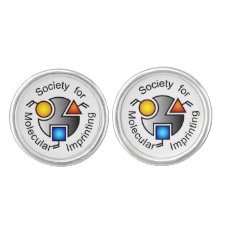
Authors: Pan JM, Yao H, Guan W, Ou HX, Huo PW, Wang X, Zou XH, Li CX
Article Title: Selective adsorption of 2,6-dichlorophenol by surface imprinted polymers using polyaniline/silica gel composites as functional support: Equilibrium, kinetics, thermodynamics modeling.
Publication date: 2011
Journal: Chemical Engineering Journal
Volume: 172
Issue: (2-3)
Page numbers: 847-855.
DOI: 10.1016/j.cej.2011.06.072
Alternative URL: http://www.sciencedirect.com/science/article/pii/S1385894711008138
Abstract: Based on polyaniline/silica gel composites (PAS) as support and functional monomer, the surface imprinted polymers (MIP-PAS) were synthesized for the selective adsorption of 2,6-dichlorophenol (2,6-DCP) from aquatic environment. The MIP-PAS was characterized by FTIR spectroscopy, scanning electron microscopy, nitrogen adsorption-desorption analysis, particle-size and EDX analysis. The effects of pH, initial analyte concentration, contact time and temperature of medium on the adsorption were studied. Equilibrium data, at various temperatures, can be described well by the Langmuir isotherm model. Kinetic can be described by the pseudo-first-order model, pseudo-second-order model, and by an intraparticle diffusion equation. A diffusion-controlled process as the essential adsorption rate-controlling step was also obtained. Moreover, intraparticle diffusion coefficient (ki) and pore diffusion coefficient (D2) for MIP-PAS elevated with the increased of 2,6-DCP concentration and temperature of medium, while increase in 2,6-DCP concentration was found to reduce film diffusion. Furthermore, the values of film diffusion coefficient (D1) were lower than those of D2, indicating the diffusion process was controlled by film diffusion. Thermodynamics parameters (positive values for delta H° and delta S°, negative values of delta G°) indicated that the process is endothermic and spontaneous. The selectivity of the imprint also demonstrates high affinity for 2,6-DCP over related phenolic compounds and over non-imprinted polymers (NIP)
Template and target information: 2,6-dichlorophenol, 2,6-DCP
Author keywords: Surface imprinted polymers, selective adsorption, 2,6-Dichlorophenol, Polyaniline, silica gel composites, diffusion



Join the Society for Molecular Imprinting

New items RSS feed
Sign-up for e-mail updates:
Choose between receiving an occasional newsletter or more frequent e-mail alerts.
Click here to go to the sign-up page.
Is your name elemental or peptidic? Enter your name and find out by clicking either of the buttons below!
Other products you may like:
 MIPdatabase
MIPdatabase









